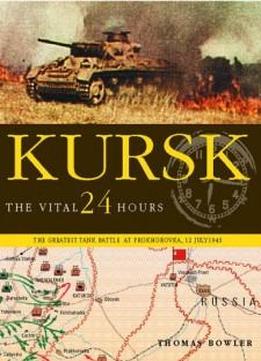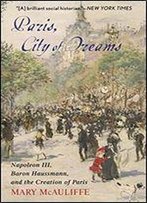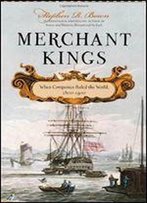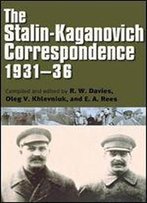
Kursk: The Vital 24 Hours
by Will Fowler /
2005 / English / PDF
70.3 MB Download
In the early summer of 1942, following the German defeat at
Stalingrad and the inconclusive battle at Kharkov, Hitler sought a
decisive battle that would turn the struggle on the Eastern Front
in the German's favour. Large numbers of the newly-designed Panther
and Tiger tanks were rolling off the production lines, and Hitler
was convinced that, with appropriate numbers, German armour could
turn the tide against the advancing Soviets on the Eastern Front.
Despite the reservations of his leading generals, Hitler was
determined this offensive take place.
In the early summer of 1942, following the German defeat at
Stalingrad and the inconclusive battle at Kharkov, Hitler sought a
decisive battle that would turn the struggle on the Eastern Front
in the German's favour. Large numbers of the newly-designed Panther
and Tiger tanks were rolling off the production lines, and Hitler
was convinced that, with appropriate numbers, German armour could
turn the tide against the advancing Soviets on the Eastern Front.
Despite the reservations of his leading generals, Hitler was
determined this offensive take place.
On the 5th July 1943, the German army launched Operation Citadel.
Attacking with a force of 3000 tanks and assault guns, the
Germans faced a well-dug in force of more than 3900 Soviet tanks,
with another 1500 tanks in reserve. The tanks advanced with as
many as 50 packed together per kilometre of line. What followed
was the largest tank battle the world has ever seen, with heavy
casualties on both sides in this titanic clash of arms.
On the 5th July 1943, the German army launched Operation Citadel.
Attacking with a force of 3000 tanks and assault guns, the
Germans faced a well-dug in force of more than 3900 Soviet tanks,
with another 1500 tanks in reserve. The tanks advanced with as
many as 50 packed together per kilometre of line. What followed
was the largest tank battle the world has ever seen, with heavy
casualties on both sides in this titanic clash of arms.
On the 11th July, three SS divisions - Totenkopf, Das Reich and
Liebstandarte - attempted to break through the Soviet lines at
the village of Prokhorovka and so unhinge the Soviet defensive
position. Facing them were newly deployed Fifth Guards Tanks
Army. The battle raged all day, with German attack followed by
Soviet counterattack. By nightfall the Germans had lost more than
300 tanks and the Fifth Guards Tanks Army 50 percent of their
strength. Despite the heavy losses, the Soviet defenders had
achieved their aim: the German attack had been halted and the
initiative lost.
On the 11th July, three SS divisions - Totenkopf, Das Reich and
Liebstandarte - attempted to break through the Soviet lines at
the village of Prokhorovka and so unhinge the Soviet defensive
position. Facing them were newly deployed Fifth Guards Tanks
Army. The battle raged all day, with German attack followed by
Soviet counterattack. By nightfall the Germans had lost more than
300 tanks and the Fifth Guards Tanks Army 50 percent of their
strength. Despite the heavy losses, the Soviet defenders had
achieved their aim: the German attack had been halted and the
initiative lost.
With first-hand accounts from both sides, vivid photographs, and
specially commissioned maps of the combat zones, Kursk: The Vital
24 Hours is a comprehensive examination of the decisive failure
of the German's last large-scale offensive on the Eastern Front
With first-hand accounts from both sides, vivid photographs, and
specially commissioned maps of the combat zones, Kursk: The Vital
24 Hours is a comprehensive examination of the decisive failure
of the German's last large-scale offensive on the Eastern Front











